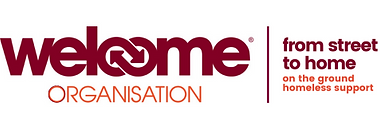Research shows health and homelessness need to be a key priority for ministers
- laurengilliland
- Sep 29, 2025
- 3 min read

We are calling on the health minister to make homeless health a key priority for his department after research revealed that over 93 per cent of people experiencing homelessness suffer from poor mental health issues.
We have been delivering homelessness services in Belfast for nearly 30 years, we have said homelessness is a health issue and should no longer be the sole responsibility of the Department for Communities.
The Health and Homelessness Research Report explores the relationship between our service users’ profile, their interaction with health services and their health needs.
The research found that 93 per cent of participants had reported mental health issues, while 83 per cent reported physical health issues.
The research also found that men experiencing homelessness are significantly less likely to be registered with a GP or dentist than women who are homeless. While females experiencing homelessness are less likely to report satisfaction with various types of health support given.
We have jointly written to the Health Minister Mike Nesbitt and Communities Minister Gordon Lyons calling for a joint commitment to addressing homelessness together.
We have also encouraged the Ministers to appoint a Homeless Health Champion to work across departments to not only formalise that joint commitment, but to make it a priority.
“In the 29 years that we have been delivering homelessness services in Belfast we have seen significant changes in the challenges faced by people experiencing homelessness and in the complexities of their needs - particularly people who are chronically homeless,” said Susan Duncan, Head of Operations at The Welcome Organisation.
“We have observed a dramatic shift in drug use among the homeless population - most notably and recently an increase in injecting of cocaine. Anecdotally we have become acutely aware that people who use our services are presenting with a range of complex mental health issues.”
“Chronically homeless people are among the most vulnerable people in the homeless population. They tend to have high rates of behavioural health problems including severe mental illness and active addictions, conditions that may be exacerbated by physical illness, injury or trauma.”
“Because of these conditions, the chronic homeless population tend to be the most frequent users of emergency, crisis response and other public safety services.”
“We view homelessness as not simply a housing issue - but increasingly a health issue.”
With this in mind we used our own data, undertook the research to help us understand the complexities of the health challenges faced by our clients.
“This research will better inform how we deliver our lifesaving services,” said Susan Duncan.
“But equally importantly, we believe this research can be an invaluable tool for the Health and Communities departments to further explore the relationship between homelessness and health.”
“With the support and investment of both departments, we believe this research can be a starting point to addressing and improving health outcomes for people experiencing homelessness, not just in Belfast but across Northern Ireland.”
On the 29th September 2025, we presented the Health and Communities Ministers with our Health and Homelessness Research Report. We welcome their commitment to explore our proposal for a Homeless Health champion and their willingness to work collaboratively across departments to met the increasingly complex health needs of people experiencing homelessness in Belfast.
To access the report, click the link below:
The Health and Homelessness Research Report was produced by The Welcome Organisation using their own data
Research notes: 1276 participants (922 male, 345 female).
For more information contact: Kieran Hughes, Head of Fundraising and Marketing, The Welcome Organisation, kieranhughes@welcomeorganisation.org
.png)



Comments